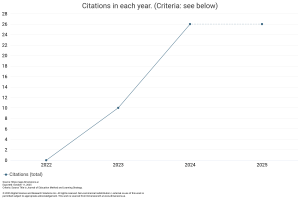Implementation of Independent Curriculum Material for Phase B Class IV Bhinneka Tunggal Ika: Knowing Indonesian Nation toward Forming Global Diversity Character Students of SDN 210 Babakan Sinyar
DOI:
https://doi.org/10.59653/jemls.v2i03.976Keywords:
Independent Curriculum, Elementary School, Character FormationAbstract
Indonesia's rich and diverse cultural diversity is an important basis for forming student character. The Merdeka curriculum, with the material "Unity in Diversity: Get to Know the Indonesian Nation", is designed to teach the values of diversity from an early age. This research focuses on the implementation of this material in class IV D of SDN 210 Babakan Sinyar to form a globally diverse character in students. The aim of this research is to analyze how the implementation of the material "Unity in Diversity: Get to Know the Indonesian Nation" can improve students' understanding and attitudes towards diversity, as well as identifying challenges and obstacles faced in the learning process. This research uses descriptive qualitative methods. Data was collected through interviews with teachers and students, learning observations, as well as analysis of curriculum documents and learning implementation plans (RPP). The research subjects were Mrs. Ayu Sugiarti Rahayu, class IV D teacher, and 20 class IV D students at SDN 210 Babakan Sinyar. Research Results: Implementation of the material "Unity in Diversity: Get to Know the Indonesian Nation" shows significant effectiveness in increasing students' understanding of national diversity. Active and collaborative learning methods, such as group discussions, educational games, and group presentations, enable students to internalize the concept of Bhinneka Tunggal Ika well. The results of formative and summative evaluations show that the majority of students are able to apply diversity values in daily interactions, showing increased attitudes of tolerance and respect for differences. Challenges and Obstacles: The main challenges in this learning include limited time in the curriculum, lack of adequate supporting resources, and differences in students' cultural and social backgrounds. In remote areas, access to technology and information is still an obstacle, and the perception that parents do not fully understand the importance of education about cultural diversity is also an obstacle. Strategies to Overcome Challenges: The strategies implemented include integrating material into other subjects, using information and communication technology (ICT) in learning, as well as increasing parental and community involvement in supporting diversity education. Conclusion: Learning Bhinneka Tunggal Ika material has a positive impact on the formation of a globally diverse character in students. Students show increased attitudes of tolerance, empathy and a sense of belonging to Indonesia's diversity. This learning helps students understand that diversity is a national asset that must be protected and appreciated. Collaboration between schools, families and communities is the key to success in achieving this educational goal.
Downloads
References
Aziz, M. (2018). Merawat Kebhinekaan. Jakarta: Elex Media Komputindo.
Baffirman. (2016). Pendidikan Karakter. Jakarta: Kencana.
Cresswell, J. (2018). Riset Pendidikan, Perencanaan, Pelaksanaan, dan Evaluasi Riset Kualitatif & Kuantitatif. Yogyakarta: Pustaka Pelajar.
Dewantara, A. W. (2019). Bhinneka Tunggal Ika Sebagai Model Multikulturalisme Khas Indonesia. Seminar Nasional Keindonesiaan (FPIPSKR).
Grace, Haudi, & Rudy. (2021). Buddhayana Sebagai Wujud Toleransi Dan Bhinneka Tunggal Ika Dalam Kemasyarakatan Buddhis. Jiapab, 3(1).
Haryanto, T. d. (2023). "Pengaruh Metode Pembelajaran Aktif terhadap Pemahaman Keberagaman Budaya pada Siswa SD. Jurnal Pendidikan Dasar, 13(2), 120-130., 120-130.
Kemendikbud. (2020). Kemendikbud: Kurikulum Merdeka Belajar. Jakarta: Kemendikbud.
Kemendikbud. (2022). Buku Saku Profil Pelajar Pancasila. Jakarta: Kemendikbud.
Mahfud, C. (2019). Pendidikan Multikultural. Yogyakarta: Pustaka Pelajar.
Pertiwi, A. D., & Dewi, D. A. (2021). IMPLEMENTASI NILAI PANCASILA SEBAGAI LANDASAN BHINNEKA TUNGGAL IKA. Jurnal Kewarganegaraan, 5(1). https://doi.org/10.31316/jk.v5i1.1450
Putri, A. D., & Susanti, R. (2023). Implementasi Nilai-nilai Bhinneka Tunggal Ika Terhadap Profil Pelajar Pancasila Di Lingkungan SMAN 1 Palembang. Adijaya Jurnal Multidisiplin, 1(1).
Riyanto, S., & Zanibar, Z. (2023). Bhinneka Tunggal Ika : Nilai Dan Formulasinya Dalam Peraturan. Jurnal Legislasi Indonesia, 20(2).
Reviyanti, E. P. (2021). Nilai-Nilai Kebhinekaan dalam Seni Tradisional Randai Perang Kamang Sebagai Pendidikan Multikultural. Journal of National Awareness Civil Society 7 (1), 2021 .
Santoso, G., Aulia, A. N., Indah, B. S. N., Lestari, D. P., Ramadhani, F. F., Alifa, H., & Mahya, A. F. P. (2023). Bhinneka Tunggal Ika Sebagai Pemersatu Bangsa Indonesia Dari Dahulu Sampai Sekarang. Jurnal Pendidikan Transformatif (Jupetra), 02(02).
Santoso, G., Marsella, A. T., Permana, D. A., & Syifa, K. (2023). Jurnal Pendidikan Transformatif ( Jupetra ) Implementasi Bhinneka Tunggal Ika dan Cita-Cita Luhur Bangsa Indonesia Versi Generasi Z Jurnal Pendidikan Transformatif ( Jupetra ). Jupetra, 02(02).
Santoso, G., Nurfazriah Putri, J., Jannah, M., Sekar Restu Prasaja, N., Alamsyah, S., & Muhamadiyah Jakarta, U. (2023). Bhinneka Tunggal Ika Pondasi Semangat Gotong Royong Bangsa. Jurnal Pendidikan Transformatif ( Jupetra), 02(02).
Sugiyono. (2019). Metode Penelitian. Bandung: ALFABETA.
Sugiyono. (2022). Metode Penelitian. Bandung: Alfabeta.
Surakhmad, W. (2018). Pengantar Penelitian Ilmiah, Dasar, Metode, dan Teknik Edisi Revisi. Bandung: Tarsito.
Tilaar, H. (2019). Multikulturalisme : Tantangan-Tantangan Global Masa Depan Dalam Transformasi Pendidikan Nasional. Jakarta: Grasindo.
Wibowo, A. (2015). Pendidikan Berbasis Kearifan Lokal. Yogyakarta: Pustaka Pelajar.
Winarno, S. (2018). Metode Penelitian. Jakarta: Bumi Aksara.
Yaummi, M. (2016). Pendidikan Karakter. Jakarta: Prenada Media Group.
Downloads
Published
How to Cite
Issue
Section
License
Copyright (c) 2024 Larastuti, Lysda Reviyanti, Muhammad Ramdan Gumilar, Ayu Sugiarti Rahayu

This work is licensed under a Creative Commons Attribution-ShareAlike 4.0 International License.
Authors who publish with this journal agree to the following terms:
- Authors retain copyright and grant the journal right of first publication with the work simultaneously licensed under a Creative Commons Attribution-ShareAlike that allows others to share the work with an acknowledgement of the work's authorship and initial publication in this journal.
- Authors are able to enter into separate, additional contractual arrangements for the non-exclusive distribution of the journal's published version of the work (e.g., post it to an institutional repository or publish it in a book), with an acknowledgement of its initial publication in this journal.
- Authors are permitted and encouraged to post their work online (e.g., in institutional repositories or on their website) prior to and during the submission process, as it can lead to productive exchanges, as well as earlier and greater citation of published work (See The Effect of Open Access).
























